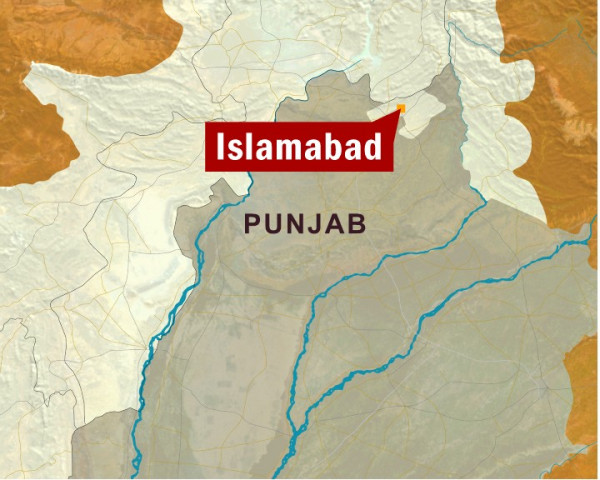Rs180b belt-tightening plan on the anvil

The drastic reduction in development outlay comes barely a month after the parliament approved the budget for the year 2010-11. The provinces will also be asked to follow suit.
Reliable sources told The Express Tribune that the government has chalked out a two-tier plan to place a cut of up to Rs180 billion on federal and provincial budgets aimed at remaining within the IMF-agreed budget deficit target (a gap between the income and expenditure) of Rs685 billion or 4 per cent of the total size of the economy.
According to officials, the federal government would save up to Rs90 billion by cutting the development programme and withdrawing subsidies. The plan is based on the assumption that the Federal Board of Revenue would achieve the Rs1.667 trillion tax collection target.
But officials claimed that FBR has informed the government that it may miss the tax target by Rs50 billion. In that scenario, the federal government would have to look for other avenues to slash expenditures of equal amount in the wake of the worst flooding in the country’s history.
The federal government has also asked the provinces to cut their annual development programmes in order to create fiscal space, necessary to adhere to the Rs685 billion fiscal deficit target for fiscal 2010-11.
Officials said that now the provinces have been asked to create a fiscal space of up to Rs90 billion to remain within the overall fiscal framework. “It is a choice between the devil and the deep blue sea,” remarked a senior government functionary who is part of the belt-tightening exercise. He said by not saving up to Rs180 billion the government would risk losing the IMF bailout programme in the future and by doing this it would invite public criticism. He said there are chances that the government may not make public its plan.
Finance Minister Dr Abdul Hafeez Shaikh is on leave at a crucial time when the nation’s economy is sinking and the so-called economic czar has embarked upon a personal foreign trip. He would be back on Sunday. The government has set August 11 deadline to resolve the fiscal dispute between the Centre and the provinces.
The government should shut defunct organisations such as the Academy of Education Planning and the National Reconstruction Bureau and choose between two organisations like the Coast Guards and the Maritime Security Agency, as such measures would save money instead of slashing the development budget, said a PPP leader on condition of anonymity.
Secretary Finance Salman Siddique confirmed that the federal government has asked the four federating units to cut their annual development programmes. He said that the decision to ask the provinces to tighten the belt and cut their development programme stemmed from a meeting, chaired by Prime Minister Yousuf Raza Gilani and attended by all four chief ministers.
He, however, said that Rs1.667 trillion tax target is sacrosanct and so far no rethink is done.
The federal government prepared the budget framework on the assumption that provinces would generate Rs167 billion surplus. However, two decisions disturbed the whole plan. A 50 per cent hike in employees’ salaries and Sindh’s development budget of Rs135 billion against the National Economic Council’s approved ceiling of Rs78 billion.
The other three provinces remained within their ceilings, approved by the NEC, however, they too have been asked to create some fiscal space in order to save at least Rs90 billion.
Deputy Chairman of Planning Commission Dr Nadeem ul Haq also confirmed that the Commission has carried out an exercise to rationalise the Public Sector Development Programme, primarily focusing on transferring some development projects after the signing of the 7th National Finance Commission Award.
He said that at the moment he would neither confirm nor deny that the government was going to cut the federal development budget. Dr Haq did not rule out any adverse cut in the near future. The federal government had announced Rs280 billion development budget with a claim that it would not be slashed. The current volume of the development budget is not sufficient to meet the needs of ongoing projects.
On the other hand the provinces are not ready to take the responsibility of the ongoing development schemes. An official of the Sindh government told The Express Tribune that by virtue of the 7th NFC award Sindh would get Rs70 billion at the maximum and most of it would erode on account of 50 per cent hike in salaries. He said it would be unfair on the part of the federal government to transfer the development programme. The reports suggest that the federal government has decided to transfer Rs238 billion projects to Sindh.
Independent tax experts have been criticising the government for giving irrational tax target to FBR. They say that the FBR cannot collect more than Rs1.585 trillion.
“The tax cannot be collected in a vacuum. The tax system is killing investors, as due to increase in tax rates the sales have started declining,” said Dr Kaiser Bengali, who is part of the Planning Commission .
Tax collection in July, the first month of the current fiscal year, remained Rs13 billion short of target. The government could collect only Rs77 billion. The sources said that in July all tax heads witnessed negative growth except customs duty.
Published in The Express Tribune, August 5th, 2010.



















COMMENTS
Comments are moderated and generally will be posted if they are on-topic and not abusive.
For more information, please see our Comments FAQ